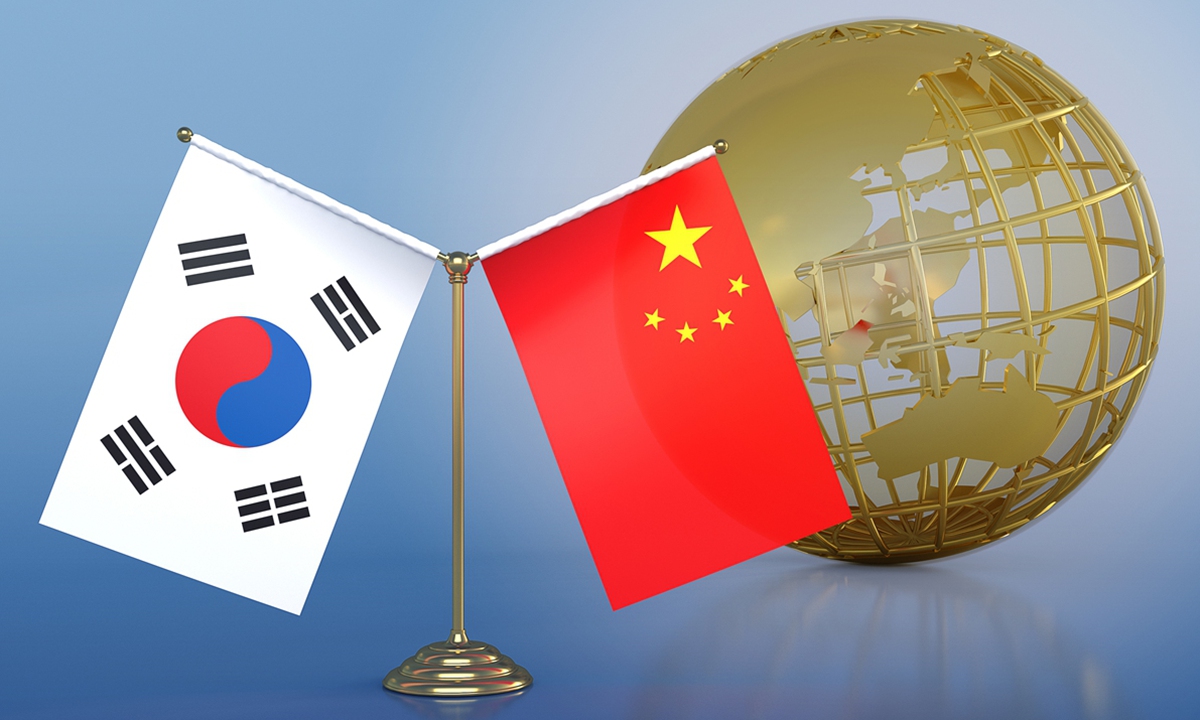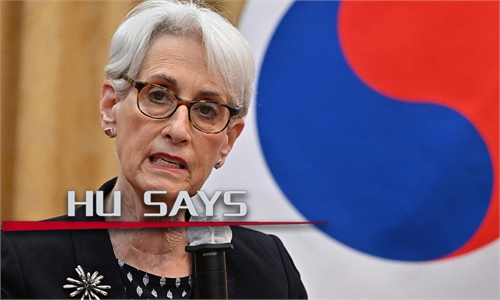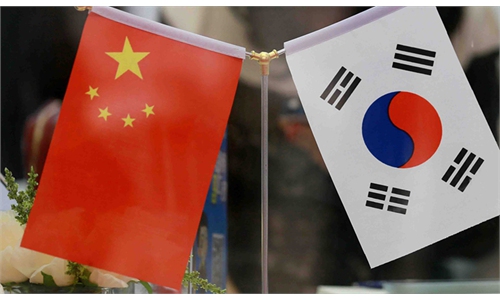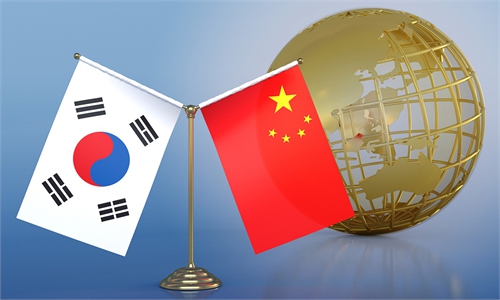Xi, Yoon to send messages on 30th anniv of bilateral ties
Countries urged to properly handle sensitive issues, focus on mutual interests

China South Korea Photo:VCG
Chinese President Xi Jinping and South Korean President Yoon Suk-yeol will send important positive messages to each other on the 30th anniversary of the establishment of bilateral diplomatic relations, which falls on Wednesday, Chinese Ambassador to South Korea Xing Haiming revealed on Monday at an event held in Seoul. Observers said this will be an obvious show of the two leaders' commitment to maintaining close relations between the two countries.
According to South Korean media outlet Yonhap News Agency on Monday, Chinese State Councilor and Foreign Minister Wang Yi and South Korean Foreign Minister Park Jin are set to read out congratulatory messages from the two leaders on Wednesday. Wang and Park are set to join the ceremonies in Beijing and Seoul, respectively, on the big day for the two countries, reported the media.
Both sides have attached great importance to the bilateral ties and the big day, which will be significant at a time of major changes in the international order and divergences between the two sides, Chinese observers said.
Citing the saying by ancient Chinese philosopher Confucius: "At 30, a man should stand firm," Xing the ambassador sent a message on Monday ahead of the anniversary in the hope that today's China-South Korea relations will be more mature, independent, stable, and dynamic.
Recently, the Chinese ambassador has made frequent appearances on South Korean media and events in exchanges with South Korean academicians, businesspeople and politicians, during which he reviewed the achievements of the bilateral exchanges over the past 30 years and expounded China's position on some sensitive issues such as the Taiwan question.
Chinese observers pointed out that Xing's recent frequent public appearances are not only because the 30th anniversary is approaching, but also because bilateral relations are in a delicate and sensitive state. The Chinese envoy's words and deeds can not only help the Chinese side to listen to the opinions of various sections in South Korea, but also help to dispel the noise against China in the country, observers said, noting that hopes and opportunities, challenges and disruptions exist in the bilateral ties.
Over the past 30 years, bilateral relations have weathered storms and rains, achieved comprehensive and rapid development. The establishment of a strategic cooperative partnership has set a good example of exchanges and cooperation between countries with different systems and philosophies for the world, Xing said on Monday in Seoul.
Last year, the bilateral trade volume hit a new record of $360 billion, and the mutual investment between the two sides reached $100 billion. China has been South Korea's largest trading partner for 18 consecutive years, and South Korea is expected to become China's second largest trading partner this year, Xing said in an exclusive interview with the South Korean media outlet Aju Business Daily on Monday.
Meanwhile, concerns are mounting over sensitive issues such as the deployment of the Terminal High Altitude Area Defence (THAAD) system, escalating anxiety in South Korea over its so-called dependency on the Chinese market after the country saw a rare trade deficit with China for three consecutive months, cultural disputes continue to cast a shadow over people-to-people exchanges, and the delicate status of bilateral ties amid US coercion lingers on.
"All these test the wisdom of both countries on how to manage disputes, seek common ground while reserving differences, and push forward the healthy development of bilateral relations," Zhan Debin, director and professor at the Center for Korean Peninsula Studies of the Shanghai University of International Business and Economics, told the Global Times on Monday.
During the meeting between Wang Yi and Park Jin on August 9 in Qingdao, East China's Shandong Province, the two sides held in-depth exchanges on the deployment of THAAD, with each side stating their stances. Wang also pointed out the importance of properly dealing with the issue and not letting it become an obstacle to bilateral relations.
Due to the increasing ideology in South Korea in recent years, the two sides have doubts and mistrust. It is necessary to rebuild trust, restart the bilateral dialogue mechanism and deeply understand each other's concerns, Zhan said.
Given that the alliance with the US is the security pillar of South Korea's diplomacy, and South Korea is also making efforts to reduce its "dependence" on the Chinese market in order to strengthen the US-South Korea alliance, Zhan warned against expecting too much from Seoul to strike a real balance between the US and China. "Pro-US but not anti-China" is the practical success of our diplomacy to South Korea, Zhan noted.
China and South Korea should build an inseparable and closely bound relationship based on the similarities of their cultures, Kim Jin-gon, minister-counselor from the Embassy of the Republic of Korea in China and director of the Korean Cultural Center in China, told the Global Times on Monday.
He noted that some specific behaviors of the two countries might lead to different results in bilateral relations, but he bears good wishes for China-South Korea ties. "As China and South Korea welcome the 30th anniversary of establishing diplomatic ties, I urgently hope the two countries can become close friends who understand each other with their connected cultures."





